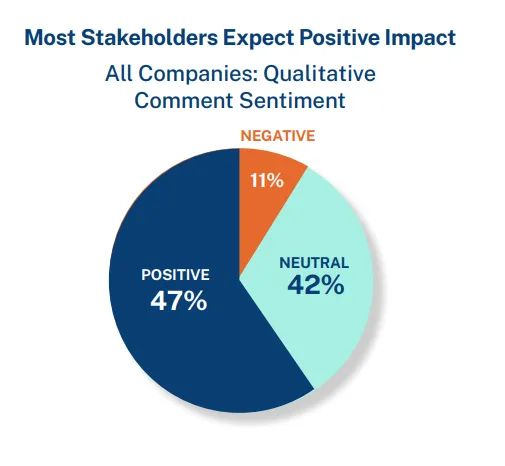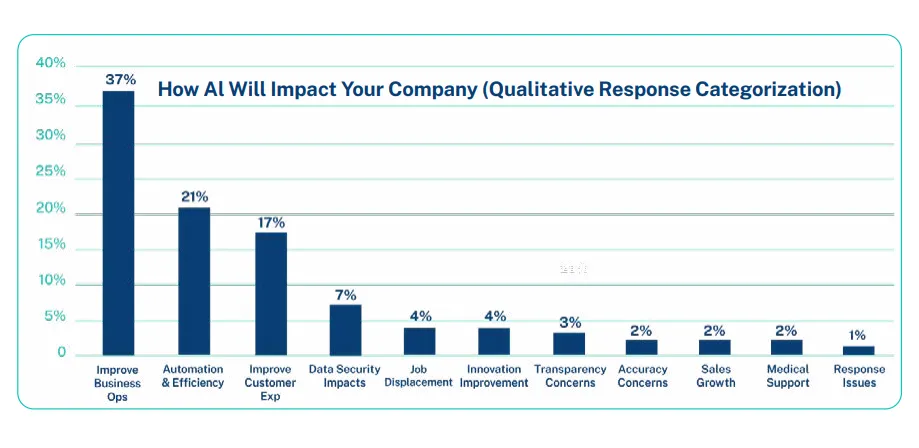Dive Brief:
- Companies positively regard investments in generative AI for its potential to streamline processes and enhance customer experience, according to a Lucidworks report shared with Facilities Dive.
- The insights firm’s AI benchmark study shows that 47% of companies surveyed expressed positive sentiment about the impact of these investments, with 92% of U.S. respondents planning to increase AI investment in the next 12 months.
- Lucidworks’ data also suggest that concerns are roughly four times higher for companies that do not plan to allocate more funds for generative AI, compared to counterparts who are proactive in their spends.
Dive Insight:
AI is increasingly being integrated into structures throughout the built environment to cultivate smart buildings, where intelligent automation systems can assist with climate control, security, maintenance, cleaning, lighting and even parking.
Given its ability to process large volumes of data and adapt to new inputs, generative AI can automate work order approvals, preventive maintenance planning and labor cost analysis, helping facilities managers conserve resources, cut costs and maintain a proactive workflow.
Lucidworks’ study of generative AI practices involved more than 6,000 respondents from companies with 100 employees or more, across 14 sectors and nine functional divisions. Participants prioritized enhancing business operations, increasing automation and efficiency, and elevating the customer experience as their top anticipated outcomes from generative AI investments.
Forty-two percent of participants maintained a neutral stance, exercising caution about potential risks, with ethical concerns prompting 11% to view generative AI spends with skepticism.

These companies highlighted issues related to the deployment of generative AI models. Their top concerns included security of company data, transparency in AI-based decision-making, likelihood of bias and the accuracy, timeliness and tone of AI-generated outputs.. Another prominent concern was the fear of job displacement, with companies struggling to determine the potential impact of generative AI on their workforce and organizational dynamics.

In contrast, organizations willing to boost their generative AI investments displayed more confidence in their ability to address these issues. Their approaches to allocating resources toward AI best practices development involve investing in strong security protocols, implementing more interpretable AI models and learning continuously to increase the accuracy of AI outputs. Lucidworks’ data also underscores the importance of cultivating AI practices that encourage responsiveness and impartiality in interactions.
“Now is the time to understand the strategy and operational opportunities for generative AI. The fundamental shift that is occurring is swift, global, and highly impactful. This study confirms the emergence of generative AI industry leaders and laggards, and those that move swiftly to orient their practices can move ahead quickly,” Lucidworks CEO Mike Sinoway said in the report.
Additionally, companies must be proactive in reskilling and upskilling their workforce to “align with AI-powered operations and foster a collaborative environment where AI enhances human capabilities rather than replacing them,” the report said.














